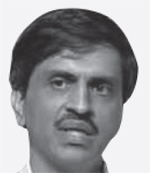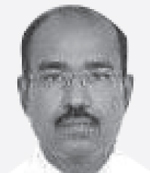Geospatially moving the nation
Speakers and Presentations

SS MATHUR
GM - Corporate Coordination
Centre for Railway Information Systems
Indian Railways

Kasturi Srinivas
Industry Sales Director- Transportation
Bentley Systems India

Adesh Dhar
Product Manager
Elcome Technologies

Sachin Jugal Malhotra,
Rolta India Ltd

Sreeja Arunkumar
Robert Bosch Engineering and Business Solutions Private Limited
Presentation on:Geo-enabled Safety Solutions for Urban India

DR. B. KANAGA DURAI
Chief Scientist & Head
PME Division
CSIR-Central Road Research Institute

Rajeev Sharma
Principal Consultant
Tech Mahindra
Presentation on:Smart Cities and Intelligent Transport

Shivalik Prasad
Director
MapmyIndia

BN Rao
AVP -LiDAR & Photogrammetry
ADCC Infocad

Gopal Valecha
AVP
Delhi Integrated Multi-Modal Transit System Ltd.

Rakesh Kaul
Senior Vice President
Infrastructure Project Development Srei Infrastructure Finance Limited
Presentation on:Smart Urban Initiatives and Transport System Management
Introduction
Moving people and goods, transportation is the backbone of an economy without which a nation would stand still. A healthy and efficient transportation infrastructure therefore is vital to an economy. To serve its large geography, India has a comprehensive transportation network, some of the largest in the world, in place comprising road transport, railways, airways, waterways, urban transport, and freight.
Population growth and the pace of economic development in India however have imposed tremendous strain on India’s transportation sector. This sector is under severe crunch to meet the demands of the increasing population and provide efficient mobility for people and resources by road, rail, air and water. While the transport demands are skyrocketing, the existing infrastructure faces challenges by way of capacity, quality, access, safety, and efficiency.
As the sector that moves India, there is an urgent need to create an efficient, safer, environmentally sound transportation infrastructure. Further, in addition to transport investment being a response to emerging demand, it is also an economic growth driver in itself. It is critical therefore that transport planning and provision are central to the growth planning process.
While India is witnessing significant investments in this sector, there is also a need to ensure that it is timely and effective in order to accrue significant return on investment (ROI). Location information-based geospatial technology has proven to be an impactful tool in effectively managing transportation and transportation projects. Use of technologies such as GIS, data sensors, GPS, surveying, RFID, satellite imagery, location data can fortify the various means of transportation with benefits such as:
- Improved, sufficient and convenient transport services
- Reduced load on the transport infrastructure
- Assuring safe movement of resources
- Improved road safety
- Addressing environmental concerns
- Higher levels of workforce productivity
- Proactive maintenance of transport networks.
- Road transport
- Railways
- Aviation
- Inland waterways
- Ports & sea transport
- Mobile resource / fleet management / logistics
- Special projects
Objectives
- Knowledge exchange: Bring together the diverse stakeholders of transportation infrastructure in the country to facilitate exchange of knowledge, technology and ideas on role of geospatial technology in effective and efficient transport systems and creating the most conducive environment for technology uptake and transfer
- Technology transfer: Present the diverse applications of geospatial technology through presentations by technology leaders and experts and how it can contribute to effective and efficient transport systems and infrastructure in the country
- Best practices: Showcase best practices of technology use through case studies by user departments
- Deliberations: Bring out user challenges and draw out possible solutions
Programme Agenda
The seminar will feature three sessions:
-
Developing an enabling framework
The government is taking a number of initiatives to strengthen the various sectors in transportation. This session will look at key central and state programmes and schemes for capacity addition and modernisation in transportation, and the role and relevance of geospatial technologies in these programmes and establishing a framework to maximise uptake of the technology. -
The geospatial solutions
Geospatial has applications and the potential to be a decision support system across various stages and aspects of transportation infrastructure – from planning, building, maintenance, load management, navigation, automation, passenger information management, safety, vehicle tracking, and environmental concerns. This session will explore the numerous geospatial solutions and innovations for transportation infrastructure management. -
Taking a lead with geospatial
This session will present case studies from various transport department and organisations on successful implementation of geospatial technologies in their processes and the benefits they have accrued.